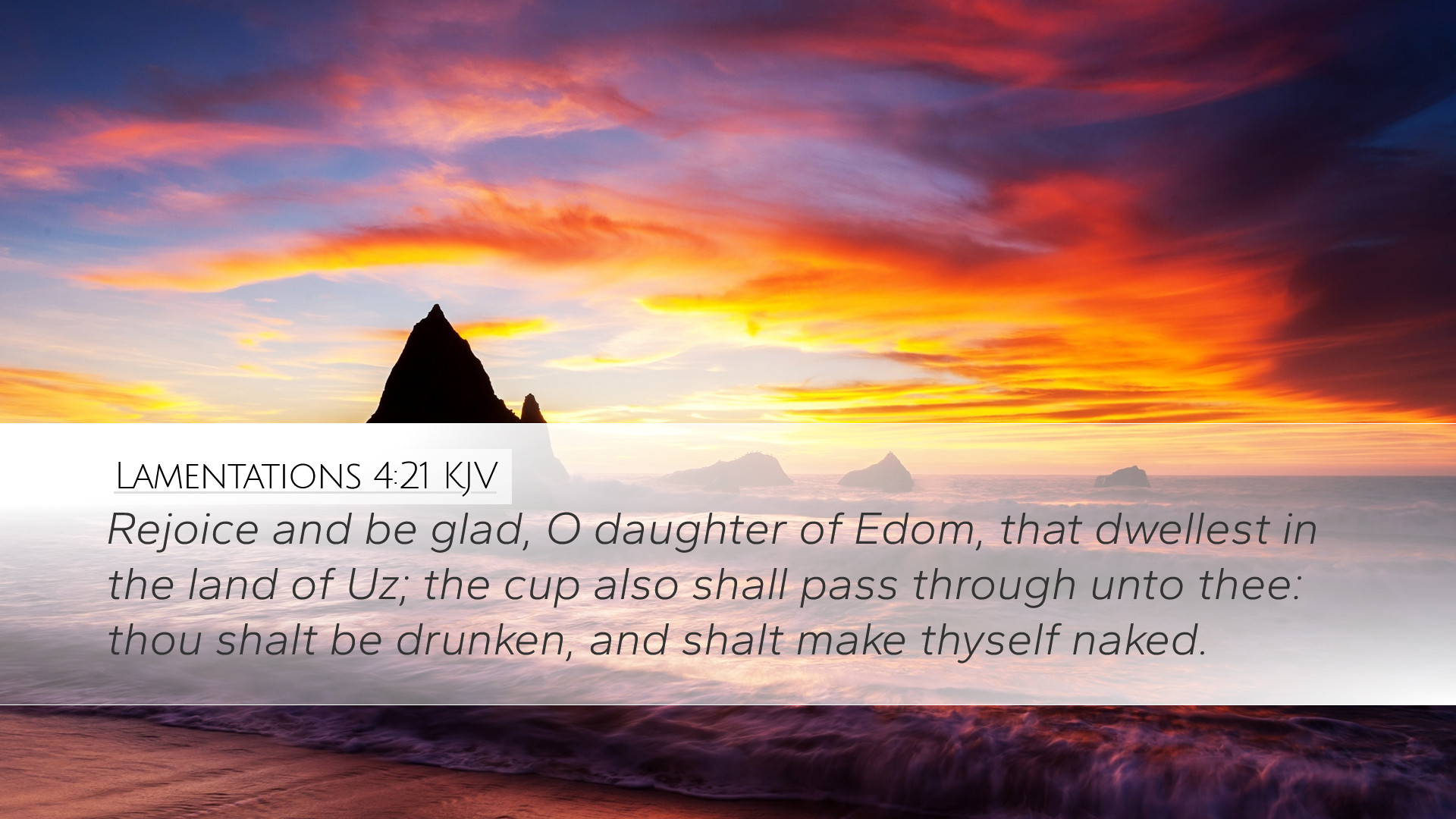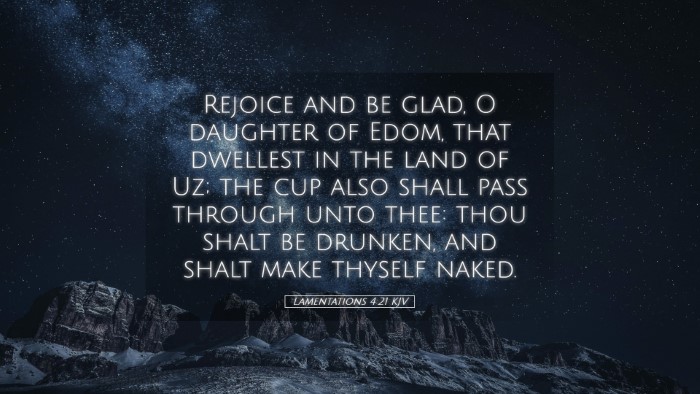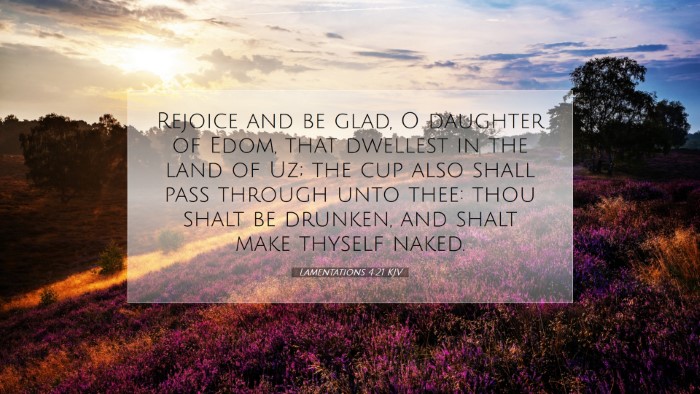Lamentations 4:21 - Commentary Summary
The verse Lamentations 4:21 states: "Rejoice and be glad, O daughter of Edom, that dwellest in the land of Uz; the cup also shall pass through unto thee: thou shalt be drunken, and shalt make thyself naked." This poignant verse encapsulates a pivotal moment within the Book of Lamentations, reflecting the sorrow, judgment, and eventual hope for restoration. Below is a detailed analysis combining insights from prominent public domain commentaries.
Contextual Background
Lamentations, traditionally attributed to the Prophet Jeremiah, addresses the profound grief following the destruction of Jerusalem in 586 B.C. This particular chapter highlights the depth of suffering experienced by the people of Judah while juxtaposing that pain with the impending judgment about to befall Edom, a neighboring nation that rejoiced in Judah's misfortune.
Verse Analysis
The first part of the verse, "Rejoice and be glad, O daughter of Edom," is a sarcastic taunt. Edom, descended from Esau, often symbolizes hostility towards Israel. Matthew Henry emphasizes the irony in Edom's joy. Rather than celebrating, they ought to grieve for their brother Judah, whose sufferings foretell their own impending doom.
Commentary Insights
-
Matthew Henry:
Henry points out that Edom, having joyously witnessed Judah's destruction, is warned that judgment is coming for them as well. He notes the biblical principle of reaping what one sows and reminds us that God’s justice will eventually bring about a reckoning for nations that rejoice in the suffering of others.
-
Albert Barnes:
Barnes describes Edom’s spirit of arrogance following Jerusalem’s fall. He notes how they assumed their historical enmity towards Judah granted them a reprieve. However, he warns that the cup of God’s wrath, which Judah had to drink, would soon be passed to them. This portrays divine justice as impartial, fulfilling God's promise that all nations will face consequences for their actions.
-
Adam Clarke:
Clarke provides a vivid depiction of the metaphorical "cup" referred to in the verse, explaining it as a symbol of divine judgment. He suggests that Edom’s eventual fate would lead to a humiliating state—“thou shalt be drunken, and shalt make thyself naked”—indicating a loss of dignity and power. The state of drunkenness can symbolize overindulgence in sin, leading to a complete downfall.
Theological Implications
This verse serves as a reminder of God's overarching sovereignty and justice. It highlights key theological themes that resonate through Scripture:
- Divine Justice: The principle that God holds all nations accountable for their actions reinforces the belief that divine justice is not merely punitive but also corrective, intending to bring nations to repentance.
- Humility: It serves as a warning against pride and complacency. Those who oppose God’s people will not escape His judgment, which calls for humility among God’s followers.
- Hope amidst Judgment: Although the immediate context appears grim, the underlying message is the assurance of eventual restoration for God’s people and judgment for their oppressors.
Practical Applications
For pastors, students, and scholars, this verse can be reflected upon in several ways:
- Encouragement in Trials: Believers can find comfort knowing that God sees the suffering of His people and that He will bring justice in His time.
- Call to Righteousness: This passage encourages individuals and communities to live righteously, avoiding the pitfalls of pride as evidenced by Edom.
- Understanding God's Nature: The character of God is revealed through His responses to both sin and righteousness, promoting deeper theological reflection and understanding.
Conclusion
Lamentations 4:21 serves as a profound reminder of the consequences of sin, the unpredictability of divine justice, and the inevitable accountability every nation, including Edom, faces in the eyes of God. It calls for introspection and a humble approach towards God's sovereignty and justice in the world. This commentary encourages an understanding that life’s adversities can be a precursor to God’s greater plans for redemption.


